Family trips with teenagers often turn into a battle against boredom. Eye‑rolling, complaints and glued‑to‑the‑phone moments can make travel stressful.
Service‑learning turns this around by offering a purpose that teens care about while still delivering fun adventures. Rather than signing up for any volunteer project, families should look for programs that combine hands-on service with cultural immersion, strong supervision and activities that align with teen interests.
The programs below, run by respected providers across the world, offer real impact and the perfect balance of work and play.
What Makes a Great Teen Service‑Learning Trip?
- Meaningful work: Teens stay engaged when they see how their contributions matter. Look for projects with clear tasks that connect to global goals. The Environmental Upcycling project in Lisbon, for example, lets volunteers turn single‑use plastics into sports equipment for marginalized communities, teaching creativity and sustainability.
- Skill development and adventure: Programs that mix service with certifications or adventure keep teens excited. Projects Abroad’s shark conservation program in Fiji includes PADI diving lessons and research dives, while GVI’s Himalayan trek and Nepali immersion program has volunteers build desks or install water tanks at schools in Pokhara and then trek through the Himalayas.
- Safety and support: Reputable providers offer 24/7 support, orientation and adult‑to‑teen ratios to ease parents’ concerns. International Volunteer HQ (IVHQ) requires one adult for every eight students and customizes programs for high‑school groups.
- Cultural immersion: Staying with local families or engaging in community life adds depth. GoEco’s family programs offer private accommodations. Volunteering Solutions’ family adventure in Malaysia includes tree planting and wildlife surveys in Borneo as well as interactions with the Orang Sungai community.
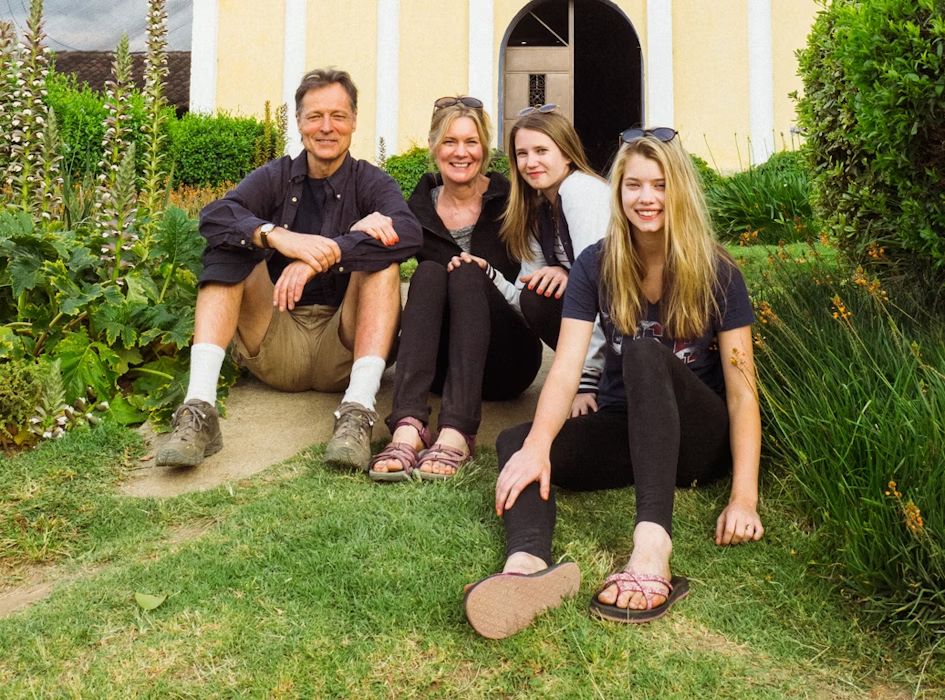
With these criteria in mind, here is a curated selection of programs that excel at keeping teens interested.
Featured Program: Ecological Park Rehabilitation in Seoul (IVHQ)
Teens help restore Yeouido Saetgang Ecological Park by planting seedlings and trees, removing invasive species, and building eco‑friendly fences and bird nests. Volunteers also learn about the Han River and contribute to long‑term habitat protection.
Marine & Wildlife Conservation
- Humpback Whale Research in Mozambique (African Impact) – Teens join boat expeditions to monitor humpback whales, learn photographic identification and collect behavioural data. Participants also assist with data processing and attend scientific talks while living at a beachside research base.
- Wildlife Photography & Conservation in South Africa (African Impact) – Budding photographers learn ethical wildlife photography, develop skills in macro and landscape shoots, and contribute to conservation by removing invasive species and photographing animals for research databases.
- Rainforest Conservation in Zanzibar (IVHQ) – At IVHQ’s project in Zanzibar, families support rainforest conservation through tree planting, wildlife surveys and environmental education. The program includes exploring Zanzibar’s beaches and spice farms, providing a fun reward after the fieldwork.
- Turtle Conservation in Huidong (China, IVHQ) – Volunteers feed rescued turtles, maintain enclosures, conduct scientific research and join beach clean‑ups. The project gives teens hands-on experience in marine biology while exploring Chinese coastal culture.
- Family‑Friendly Sea Turtle Conservation & Eco Tour in the Maldives (GoEco) – Families stay on Naifaru Island, assist at a marine centre caring for injured turtles, snorkel, conduct beach cleanups and upcycling classes, and can add diving certifications. Cultural immersion includes cooking lessons and island tours.
- Sea Turtle and Marine Conservation in Greece (GVI) – Under‑18 volunteers monitor loggerhead and green turtle nests, survey seagrass and guide hatchlings to the sea. Beach cleanups, snorkel surveys and cultural experiences such as Greek cooking lessons make this program both educational and fun.
Wildlife Rescue and Farming
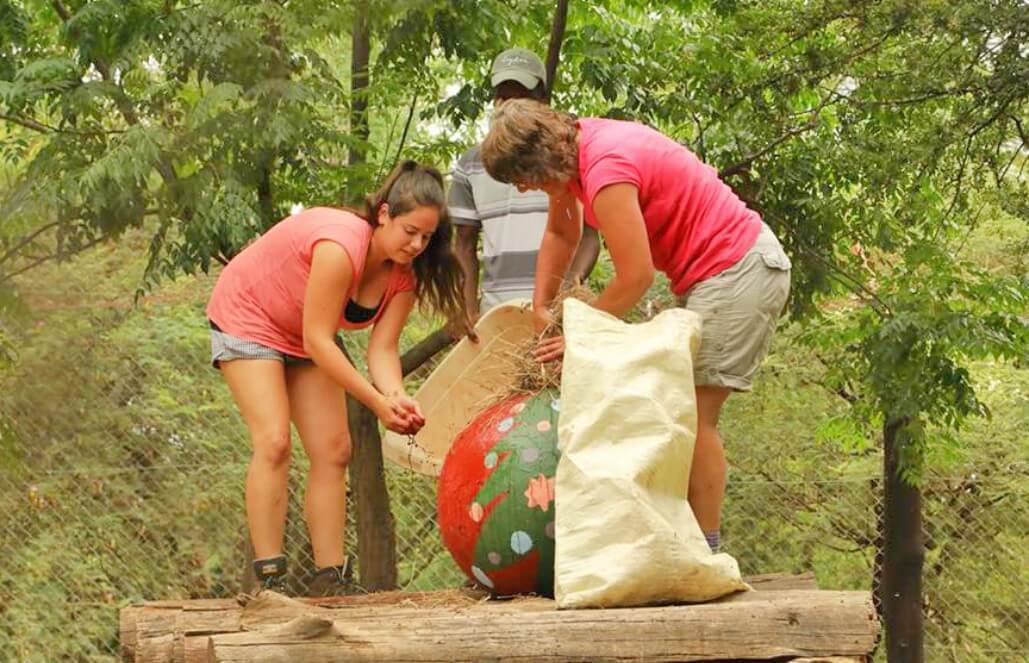
- Family Wildlife Orphanage in Zimbabwe (GoEco) – Volunteers work at one of Africa’s oldest wildlife sanctuaries, feeding animals, cleaning enclosures and learning about rhino conservation.
- Wildlife Conservation in Botswana (Projects Abroad) – Teens live on a reserve near the Limpopo River and build waterholes and dams, track animals, join anti‑poaching patrols and set up camera traps. This program offers true bush‑life immersion with 24/7 support and environmental education.
- Desert Elephant Conservation in Namibia (GVI) – Participants build protective walls around water sources to reduce human–elephant conflict, track desert elephants to collect movement data and contribute to an identification database. The two‑week cycle splits time between construction and elephant tracking, giving teens a taste of conservation fieldwork.
Sustainable Agriculture & Environmental Education
- Sustainable Agriculture in Arusha, Tanzania (IVHQ) – Volunteers work on community farms, supporting local farmers in implementing sustainable practices and improving food security. Activities may include crop planting, composting and irrigation, giving teens practical environmental knowledge.
- Environmental Education in Ubud, Bali (IVHQ) – Teens help tackle Bali’s litter problem by teaching students about waste management and organizing community cleanups. Cultural immersion includes Balinese arts, language lessons and exploring rice terraces.
- Health Education in Senggigi, Lombok (IVHQ) – Volunteers teach children basic health and sanitation, creating engaging lesson plans that combine games with critical messages. This project builds public speaking and leadership skills while promoting health awareness.
- Environmental Conservation in Mangochi, Malawi (IVI) – Volunteers plant trees, build and maintain nurseries, lead environmental education workshops, set up waste‑sorting bins and learn permaculture principles. The program addresses climate change through hands-on action and community engagement.
- Community Farming in Kanjjansi, Uganda (IVI) – Teens join rural Ugandan farmers to plant, weed, water and harvest crops, care for animals and clean tools. The slow pace and close contact with locals provide authentic cultural immersion.
Sports, Teaching & Community Engagement
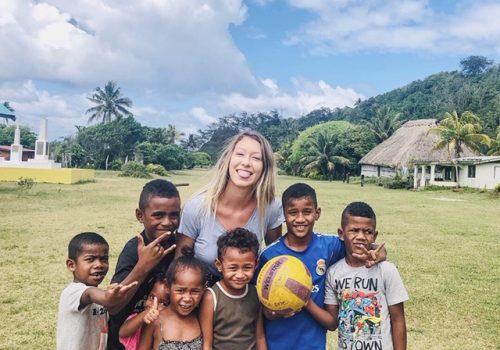
- Soccer Coaching in Ghana (Projects Abroad) – Teens work with professional coaches to help disadvantaged children improve their soccer skills, plan training sessions and even referee matches. The program includes first aid and lesson‑planning training, making it ideal for aspiring coaches.
- Teaching & Community Projects (Cambodia, GoEco) – Families volunteer at a community‑run school in Samraong, teaching English, organizing games, running hygiene workshops and gardening. Cultural activities such as cooking classes and temple visits enhance the experience.
- Climate Change & Wildlife Program for Teenagers in Kenya (GoEco) – A two‑week expedition where teens teach, paint murals, organize games, plant trees, monitor wildlife and remove invasive species. Participants also visit Maasai villages, go on safari and attend climate workshops.
- Elephant Rescue & Community Building in Thailand (GoEco) – Teen volunteers care for rescued elephants, help with construction and renovation projects at the sanctuary, learn Thai cooking and explore local markets. Supervised activities include feeding elephants and assisting with their daily care.
Why These Programs Engage Teens
- Real responsibilities: All the highlighted programs give teens specific tasks — monitoring turtle nests, constructing desks, leading workshops or planting trees. Having real responsibilities fosters confidence and ownership.
- Adventure balanced with work: Programs pair service with diving certifications, treks, safaris or island excursions. This mix keeps boredom at bay and offers a reward for hard work.
- Supportive environment: Providers like IVHQ and GVI maintain adult supervision ratios and provide pre‑departure training, orientation and emergency support. GoEco’s teen programs offer meet‑and‑greet sessions and real‑time updates to parents.
- Cultural exchange: Many programs involve living with host families or engaging with local cultures through cooking classes, market visits or language lessons. This encourages empathy and global understanding, qualities essential for teens entering adulthood.
How to Choose the Right Program
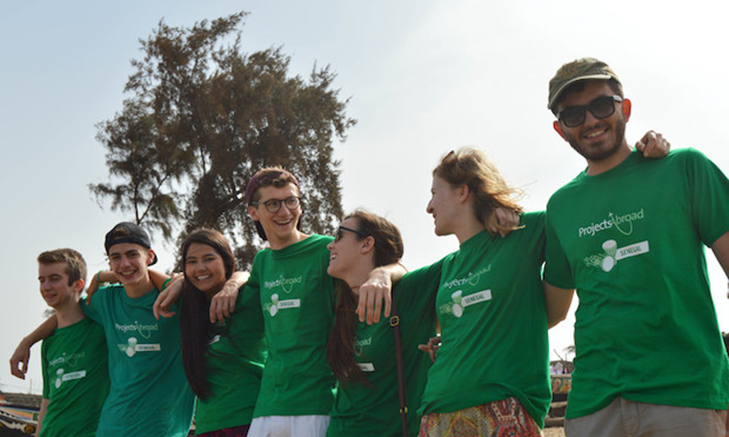
- Match the cause to your teen’s passion. If your child loves marine life, programs such as Projects Abroad’s shark conservation in Fiji. Sporty teens might enjoy coaching in Laos, while budding environmentalists could thrive in sustainable agriculture projects in mangrove reforestation in Sri Lanka.
- Consider time and comfort level. Short two‑week programs like GoEco’s Kenya expedition might suit first‑time volunteers. Family‑friendly programs offer private accommodations and flexible schedules.
- Evaluate support and safety. Ensure the provider has extensive experience with teens.
- Budget wisely. Many programs include accommodation, meals and excursions. Compare program fees and factor in travel costs. Some providers, like GVI, offer grants and scholarships for teens.
Inspire Teens through Meaningful Exploration
Service‑learning trips can transform family travel from passive sightseeing into purposeful adventures. By choosing programs that align with your teen’s interests, offer real responsibilities, mix service with exploration and provide robust support, you ensure that your teenager returns home empowered and inspired rather than rolling their eyes.
These service‑learning experiences will create memories that last a lifetime and foster a lifelong commitment to global citizenship.












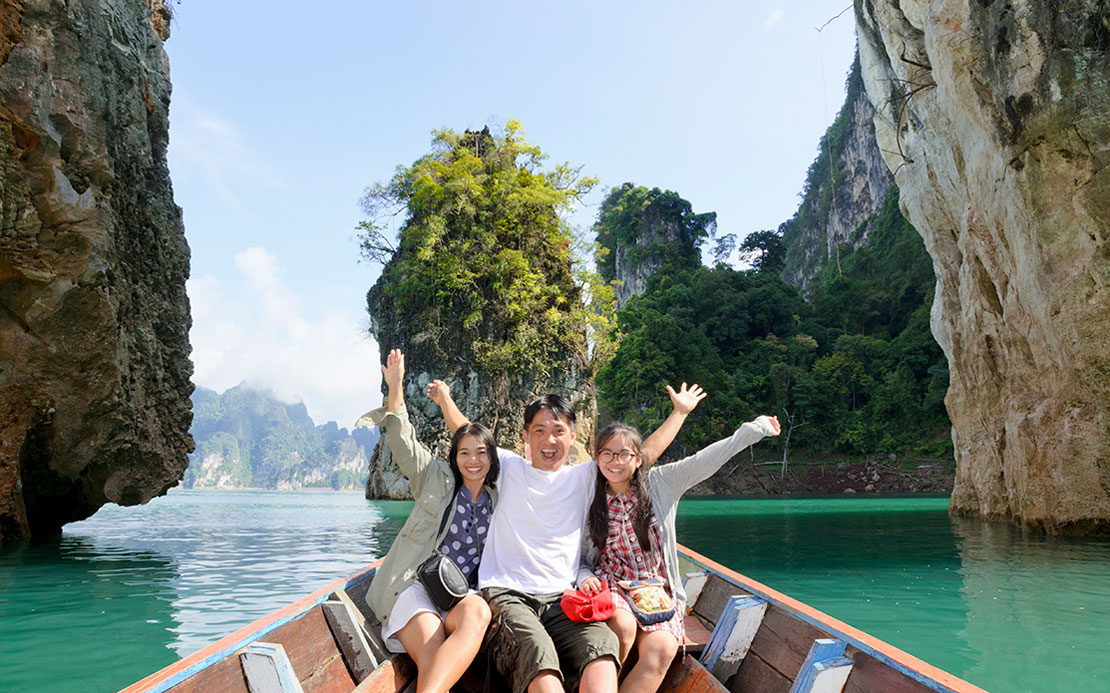
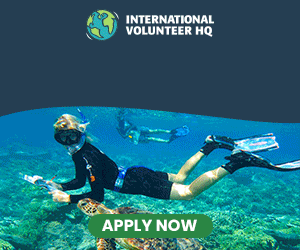






Munira Maricar · Travel Writer
With an international living background spanning Singapore, Qatar, Japan, and Mexico, Munira enjoys sharing insights on immersive travel while emphasizing the vital role of cultural respect and ethical engagement. Her extensive experience offers a unique perspective that inspires others to explore the world through service, ensuring that every journey respects and contributes positively to local traditions and communities.